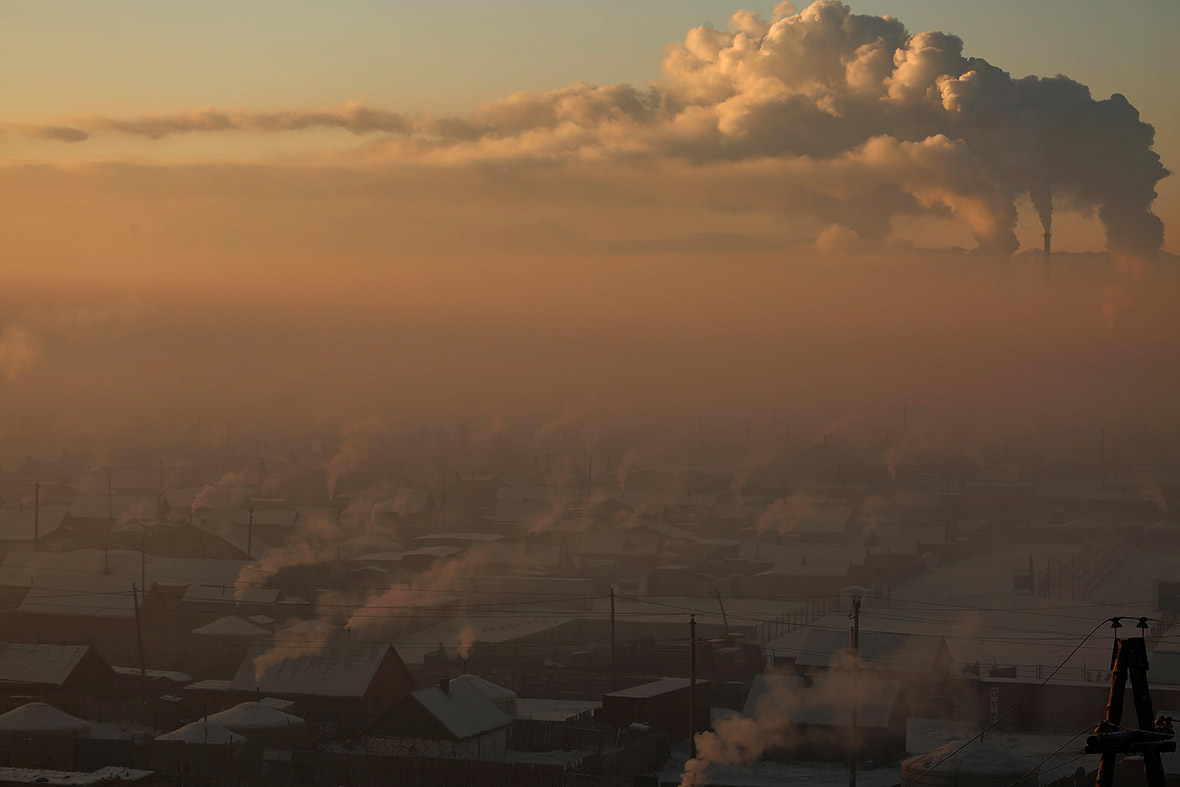Photos of toxic smog hanging over Mongolian capital Ulaanbaatar
The level of harmful breathable particles known as PM2.5 has hit 1,000 micrograms. The World Health Organisation acceptable standard is 20-25 micrograms.
The air quality in the Mongolian capital Ulaanbaatar is among the worst in the world. The city's air, which is at times far worse than Beijing's infamous smog, is thick with smoke from burning coal, wood and even rubbish, as residents try to stay warm during brutal winters.


The capital's total emissions of harmful breathable particles known as PM2.5 surged to a high of 855 micrograms per cubic metre late last month. In comparison, Beijing's air on the same day, measured 70 micrograms. The acceptable standard, according to the World Health Organisation, is 20-25 micrograms. The reading in Ulaanbaatar has been known to hit 1,000 micrograms.
On most winter mornings, Setevdorj Myagmartsogt wakes up to a cloud of toxic smog blanketing his neighbourhood. "Because of the air pollution, our health is getting worse," Myagmartsogt told Reuters. "When my two youngest kids go to kindergarten, they get ill every week and they have to stay away... It's because of the air pollution."


About 80% of the city's smog comes from poor "ger" districts, a sprawl of traditional tents that have sprung up on the edge of the city, said Tsogtbaatar Byamba, director of Mongolia's Institute of Public Health. Many residents are former herders who migrated to the city after their livestock was wiped out by recent extremely harsh winters, which have become more common, partly because of climate change.
As temperatures plunge to as low as -40C, ger residents with no access to the state heating grid burn whatever they can to keep warm. To combat this, the government last month bolstered restrictions on migrants to the capital, allowing only those in need of long-term help and people who own homes until the end of the year.










Hundreds of residents gathered recently in the city's Chinggis Square to protest against the government's inability to tackle the smog. Demonstration organisers collected more than 7,000 signatures. "The air pollution has had real consequences in my life," protester Otgontuya Baldandorj told Reuters. "I was pregnant three times, but I lost all of them. With my fourth child, I had to go to the countryside to get fresh air to give birth."
© Copyright IBTimes 2025. All rights reserved.






















